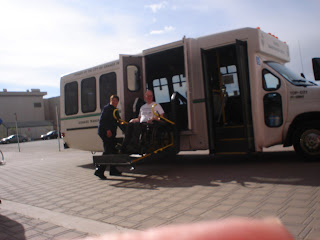 |
| This pile has had its top knocked off 2x this year |
I first started thinking about this post 2 weeks ago when this story came out (for those readers who still think in feet and inches, 30cm=1 foot, 100cm=39 inches).
In Canadian cities (and I assume many other places) there are two favoured winter past-times. Complaining about snow plowing/removal and complaining about property taxes. Lots of times they get combined -- such as "for the insane amount of taxes we pay the streets should be plowed as soon as it snows".
This winter has been no exception. But it HAS been an exceptional winter. As the link above states, a seasonal average snowfall is 154cm. Up to two weeks ago we already had 132. Twice the average in November and 3x the average for December by the middle of the month (note today I found this story which shows we have had another 35 or so centimeters in the last 2 weeks -- much of it in the last week, as the snow pile beside our fence shows). A week before Christmas I heard someone who was born and raised here say that the snow piles looked normal--for March.
 |
| This pile had been completely cleared on Saturday afternoon (and does not include last night's dump of 4 inches or so) |
Well I am sure there are a lot of people being realistic and fair....
I KNOW there are a lot of people whose expectations are, well, unrealistic. Yes snow removal is not happening nearly as fast as anyone (including the city) would like. But when it never stops coming what can you do?
THe city has a fairly logical plan that they do Priority 1 and 2 roads (arterials, bus routes that sort of thing) first and then start working their way through the residential streets. And in a normal year they hope to get to all residential streets 3 times (they even post the rotation so folks can see what order neighbourhoods are being done in and where they are at in the cycle). Makes perfect sense to me. Of course the job is not made easier by the large number of people who (for whatever reason) park on the street, even when signage says not to to allow for snow clearing or by the fact that in most of the city the sidewalk is right on the street so all the snow needs to be piled into windrows and trucked away, or piled on the sidewalk (which has a whole set of other problems) rather than being piled on a boulevard. And of course when it never seems to stop snowing then you never get past Priority 1 or 2 roadways anyway (and Priority 2 roads, which are No Parking as snow routes Nov-May still seem to have lots of cars on them)
But there seem to be a whole bunch of people who expect residential streets to be done within 48 hours of a snowfall. And so as December rolled on and some places had not seen a plow at all after 132 cm of snow there was a lot of flak. So the city instituted a temporary solution. To get streets passable they would do a quick plow, with the goal to get the surface flat not go down to pavement, and leave piles on sidewalks and driveways for residents to clear. And while some people applauded that emergency measures were being taken (and I for one would argue that they could/should have made that decision a week earlier) it just gave some people something else to whine about.
But hear is the thing. No matter how much snow falls there are only so many plowing hours available. Drivers need days off. You can only clear so much roadway an hour. and the equipment and wages that are used for snow removal are paid by taxes. So you can not logically complain about needing more service and ask to pay less taxes in the same sentence. Right?
And well I do believe there is a time for debate the snow removal plan and discuss whether it is adequate, no plan would match a year like this. I would suggest that the city is too reliant on contractors in an average year as it is, which means that in a year like this you have already tapped the resources that are available, so it is hard to ramp up even more. So yes, maybe there is a discussion to be held -- though at the same time I have seen an improvement in snow removal each of the last two years. But despite what some people seem to want, it is not responsible to plan so that in the exceptional year you can provide the same level of service as an average* year--then in a normal or sub-average year you have massive investments sitting idle. And imagine the tax complaints when that happened. I would suggest the best plan is to have a structure to deal with a "heavy average" year, with a level of resources that leaves some untapped ones in the plan to call forth in a heavier year.
In the meantime let's be thankful that we have snow plows. And that snow is not like an ice storm that throws thousands into a blackout. And maybe someone can turn off the tap on the snow machine for a few weeks? Please?
*I also have to mention that average is a hard thing to use in these discussions. I assume when they say average the mean the mean which is calculated by adding however many years worth of data they are using and dividing. I would suggest a more helpful metric would be the mode which is the most common value in the data set. Of course if patterns are consistent both those values should be fairly close together.





















